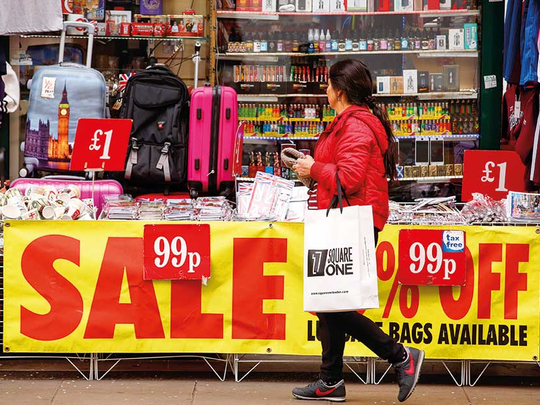
London: UK inflation resumed its upward march last month, accelerating more than forecast to the fastest pace in four years.
An increase in prices for computer games, laptops and package holidays — partly reflecting the impact of the weaker pound — lifted the inflation rate to 2.9 per cent, the highest since June 2013. Economists had forecast that it would remain at 2.7 per cent.
Core inflation, which excludes food and energy, also unexpectedly quickened in May, according to the Office for National Statistics. It reached 2.6 per cent, the highest since November 2012.
The price pickup means additional pressure on households, who aren’t seeing their wages keep pace. Bank of England Governor Mark Carney expects inflation to keep accelerating this year before falling back slightly from 2018. The BoE targets a 2 per cent rate.
Faster inflation is already weighing on the economy. Growth slowed to 0.2 per cent in the first quarter, partly because of weaker consumer spending, and the National Institute of Economic and Social Research estimates it hasn’t picked up so far this quarter.
Consumers may further retrench after this month’s snap election saw Prime Minister Theresa May lose her parliamentary majority, adding to uncertainty surrounding Brexit negotiations. That prompted investors to pare bets on a BoE interest-rate increase by the end of 2018 to 36 per cent from 52 per cent before the vote.
While inflation has climbed from just 0.3 per cent a year ago, there are signs that some of the import-cost pressures are easing after the pound stabilised earlier this year.
The annual increase in factory input prices slowed to 11.6 per cent in May, the weakest since September, and the ONS said it’s “continuing its decline from 19.9 per cent in January 2017 following the recent strength of sterling.” Output-price inflation held steady at 3.6 per cent.












